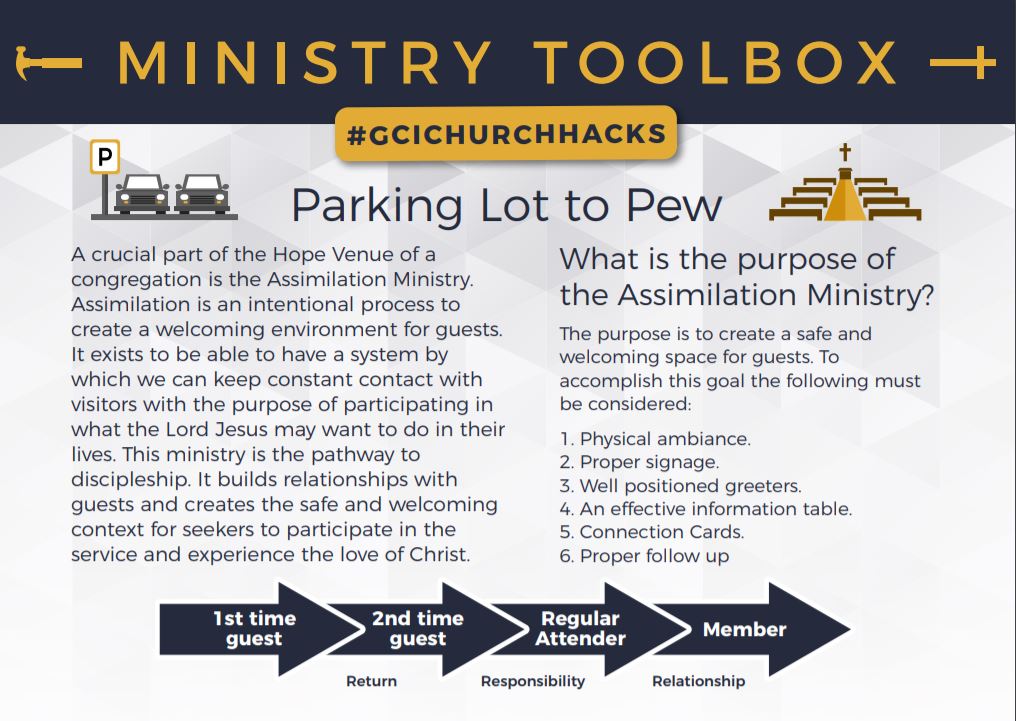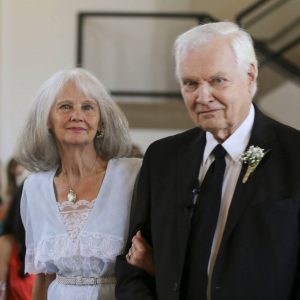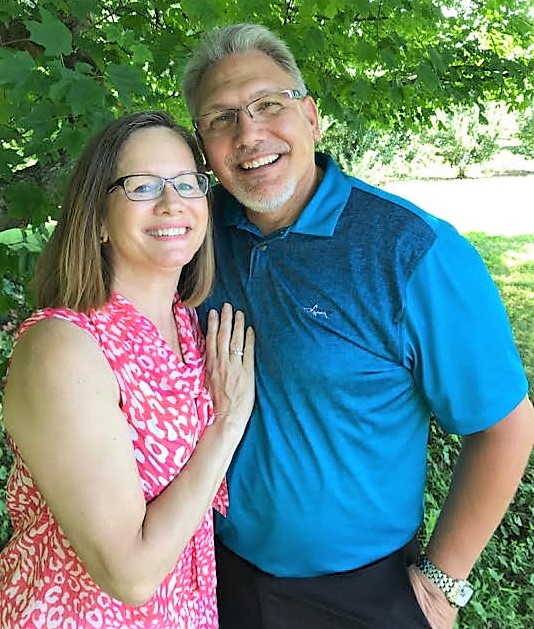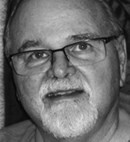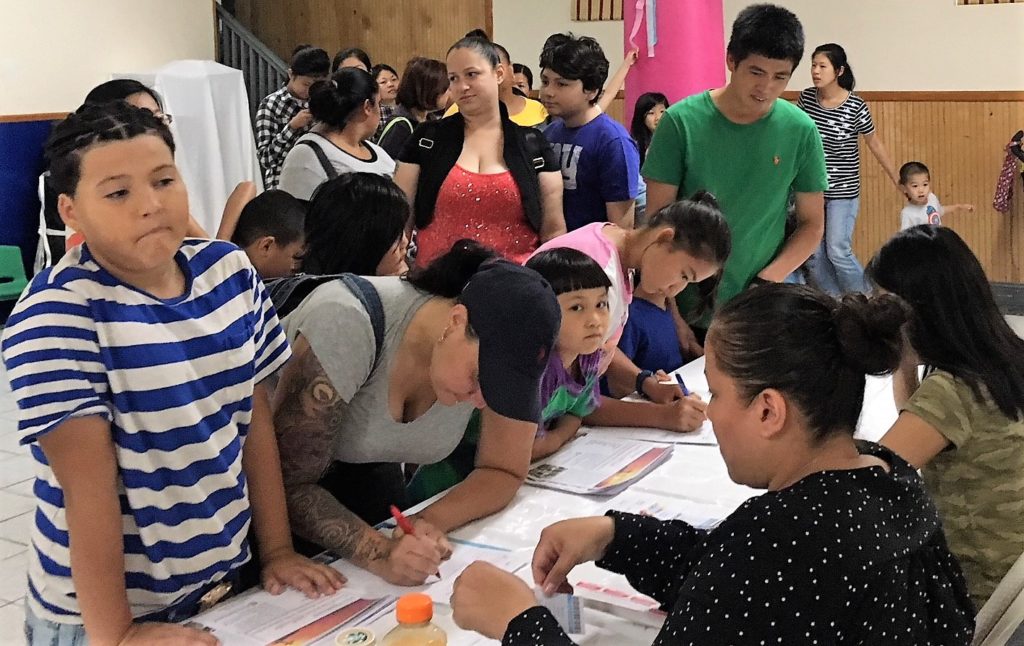Here is part three of The Church, the Kingdom and Human Government—a three-part essay from Grace Communion Seminary President Gary Deddo (click here for part 1, and here for part 2).
Accounting for the distinctions

(public domain via Wikimedia Commons)
So far in this essay, we’ve noted important distinctions between the church, the kingdom of God and human government. When these distinctions are understood and properly accounted for, avenues are opened for the church to bear appropriate witness in the public square. In taking advantage of that opportunity, the church must keep clearly in mind the following five points:
1. The church in its witness must never give ultimate or unquestioned allegiance to any political or social ideology, or to the absolute rule or reign of any person or human institution. It must not idolize any humanly imagined ideal, and it must not justify evil means to accomplish the ideals promoted by ideological zealots. Instead, the church must carefully discern what limited good government (be it local, regional, national or international) can achieve without causing more harm than good (see Romans 13:1-7). The church must not be seduced by idealistic dreams, especially ones that demand realization at “any cost.” It must not be surprised that in this fallen world there will often not be complete or total solutions to our human problems, nor will there be a perfect solution to a particular problem that has all benefits and no downsides. By worshipping God alone and resisting all idolatries (including the idolization of human ideals and ideologies) the church will remain free to be the church, fulfilling its vocation in worship and witness under the word of God, both living and written.
2. The church must not be distracted and misdirected from its calling of worship and witness by attempting to build the kingdom or to establish in this present evil age a church-ruled government among those who do not yet believe. Instead, the church must stay on message, faithful to its calling to urge people everywhere to put their trust in Jesus, worshipping God alone, and repenting of any efforts to give ultimate loyalty to any other king, kingdom or ideology. The church must proclaim Jesus Christ, who calls for unconditional faith, hope and love for him, and it must proclaim Jesus’ kingdom—his coming rule and reign in a new heavens and new earth. The church, therefore, should promote living here and now, under the Lordship of Jesus Christ and in the light of that secure future hope.
3. The church must retain its independence from any secular authority. It must not come under the lordship of any person or human authority. It will give up its life first for the sake of the gospel, as God enables. It will retain its responsibility for its members who out of freedom become incorporated into the body of Christ. No one will be compelled by force to remain part of the church. The church will remain free to exercise proper, compassionate and wise discipline of its members. It will retain its freedom to nurture, teach and train its own leaders according to its own standards under the irreplaceable, unsurpassable and final authority of the word of God. Moreover, the church will retain its freedom to order its own worship and life together. It will resist all governmental encroachment and violation of its God-established calling, not for its own sake, but for the sake of its mission to the world, lived out directly in worship and indirectly in its wider witness.
4. The church must engage in hopeful and truthful evangelism that refuses to use any underhanded, manipulative or deceptive ways of proclaiming the truth of the gospel. It will do so in order that others may receive the grace of God and enter the joy of being transferred from the kingdoms of darkness into the kingdom of the Son. The church must use only those means of proclamation that give people freedom to respond out of their hearts and minds before God. Faith, hope and love for God cannot be externally imposed—they cannot be coerced or bribed. The basis for the church’s proclamation must be the truth of the gospel, which, when needed, will include warnings concerning the consequences of rejecting the gospel (but pointing out as consequences only those things clearly stated in Scripture, rather than using wild, fear-based speculations). The church is dependent upon the often behind-the-scenes ministry of the Holy Spirit to open eyes and soften hearts to prepare people to be open and receptive to the gospel of Jesus Christ.
5. Scripture tells us that as part of being in but not of (conformed to) the world, God’s people are to advocate for the common good. We see this in the examples of Joseph and Daniel who contributed in practical ways to the foreign nations in which they were exiled while maintaining devotion to God. We also see this in the command God gave Israel to seek the welfare of the cities in which they were exiled (Jer. 29:7). Note also that the apostle Paul exhorted Christians, as they “have opportunity,” to “do good to all people, especially to those who belong to the family of believers” (Gal. 6:10). Finally, note what is said in Matt. 5:45; Luke 6:33-35; 1 Pet. 3:11 and Heb. 13:16. An important way the church advocates for the common good today is by declaring through actions and words that all humans, by virtue of being God’s image bearers, have an inalienable right to justice (right relationship). Christians can also assist those who affirm this right but lack an understanding of its true Source.
Being the church in a pluralistic culture
Two corollaries to the fifth point should be noted. First, Christians can honestly and forthrightly promote societies and governments that defend the right of all people to spend their lives seeking truth, goodness and beauty, and the ultimate Source of those values. To seek this God, who is revealed in Jesus Christ, is a task given to all people, as declared by the apostle Paul in a public square in Athens:
From one man [God] made all the nations, that they should inhabit the whole earth; and he marked out their appointed times in history and the boundaries of their lands. God did this so that they would seek him and perhaps reach out for him and find him, though he is not far from any one of us. (Acts 17:26-27)[1]
When it reaches out with humility, respect and freedom, the church can help people (even those who hold views and moral convictions in conflict with Christianity) to seek and discover truth and life, and the true object of worship. Members of the church do this by first listening and coming to understand, then looking for opportunity to share their own journeys and convictions concerning the faith, hope and love given them by grace through the gospel of Jesus Christ according to Scripture.
The second corollary to the fifth point is that as Christians we should resist attempts to close the public square to honest, respectful and humble interchange, especially when it involves excluding people whose voices are already marginalized. Everyone who values an equal right to justice under the law, and the free exchange of beliefs and ideas (religious or not) should be welcomed in the public square, no matter what the basis or lack of basis they have for their viewpoints.
As Christians, we can, in good conscience, advocate for pluralism in the public square that is descriptive rather than prescriptive. While descriptive pluralism respects all viewpoints, prescriptive pluralism excludes all claims to ultimate truth (seeing them as mere human constructions that are valid only for certain individuals or groups). Descriptive pluralism serves the common good and allows the church to freely and openly fulfill its mission of worship and witness.
As Christians, we believe there is only one way to a right relationship with God—through the grace and truth of the Lord Jesus Christ, who alone is the Way, the Truth and the Life. His name alone indicates the eternal, personal and particular source of salvation. He alone is the Lamb of God who takes away the sin of the world (John 1:29). Though we are firm in this belief, we see in the New Testament that God, in his providence, leads persons over time along many pathways to Jesus. Therefore, we should respectfully and patiently allow room for God to draw people to himself, through Jesus, by whatever means he chooses. Until Christ returns, descriptive pluralism in the public square will continue to be a necessary and good way to provide a place where all people, no matter their background or point of view, can have opportunity to encounter the Source of all truth, goodness and beauty.
In a truly pluralistic society, all who value freedom and show respect and humility toward others are welcome in the public square, while ideologues who seek to control, manipulate, threaten or shut down public discourse are resisted. A truly pluralistic society makes room for all to seek what is true and good, and thus contribute what they have to the public square. As Christians, we have good theological reason to promote descriptive pluralism within the public square and to support the governments and institutions that uphold this pluralism. We know that the Triune God is patient and kind, making time and space for us to seek him and know him, and for the church to proclaim salvation in the name of the Father, Son and Holy Spirit, so that all might reach repentance and know and worship the living God.
Conclusion
We conclude this essay noting that the church must maintain proper distinctions between the church, the kingdom of God and human government. Doing so is vital to the church staying true to its God-given vocation of worship and witness, and to avoiding being compromised by any attempts to misuse human authority over the church. The church should engage in the public square and also help maintain the public square, one that seeks the common good and provides a place for all to seek what is true and good, ultimately, all the way to its true Source.
Within the public square, the church should seek to provide a faithful witness to the sure hope of the gospel of Jesus Christ without being compromised by false hopes offered by humanistic ideologues and the often less-than-good-and-right (and sometimes evil) means they use to justify and attempt to bring about their idealistic ends. The church should maintain its biblical and theological, Christ-centered worldview of creation, fall, reconciliation and final redemption, and clearly proclaim this good news. In doing so, it must neither underestimate the power and deceitful nature of evil that is still influential in the world, nor pull back from its calling to proclaim the ultimate redemptive power of God in Christ to overcome evil and the ultimate hope of all things made new.
Finally, maintaining the biblical distinctions and proper relations between the church, the kingdom of God and human government enables the church to humbly and patiently embody here and now temporary, partial and provisional signs of the nature, character and sure hope in the coming kingdom of God. Keeping clearly in mind that Christians are to serve as witnesses to Christ and his kingdom as they wait patiently for Jesus’ return will keep the church from using faithless means and underhanded techniques to bring about some sort of idealized church. Instead, through its worship and congregational life, and through its engagement with civic society (the spheres beyond the boundaries of the church) the church will faithfully live out its calling to be the body of Christ on earth as it provides embodied signs (parables) of the kingdom and its King. It will do so in season and out of season, in good times and in times where there is resistance and even persecution.
As it lives out its calling, the church will be a beacon of hope in a lost world—a channel of saving grace to all made ready and willing by the ministry of the Holy Spirit to acknowledge Jesus Christ as their Lord and Savior over all of life, over all of history. Come, Lord Jesus!
Endnotes
[1] See also Isa. 55:6, ESV (“Seek the LORD while he may be found, call upon him while he is near”); Acts 15:17, NRSV (Paul speaking about God’s purposes towards the Gentiles proclaimed by Amos, “So that all other peoples may seek the Lord”); Matt. 6:33 (“Seek first his kingdom and his righteousness”) and Rom. 2:4, NRSV (“Do you not realize that God’s kindness is meant to lead you to repentance?”).
Related resources
- For a more extensive essay by Gary Deddo on the topic of the kingdom of God, click here.
- For a policy statement from NAE concerning the church’s advocacy in the public square, click here.




